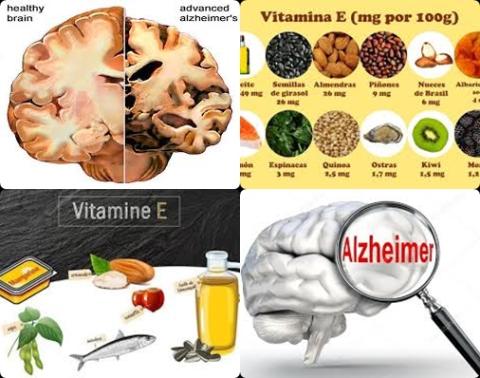
Objectives:
Findings from observational studies and clinical trials on the associations between vitamin E and dementia remain controversial. Therefore, this review article has been conducted.
Do low vitamin E levels increase risk of Alzheimer's disease (AD) or age-related cognitive deficits and mild cognitive impairment (MCI)?
Study design:
This review article included 31 studies.
Results and conclusions:
The investigators found individuals with Alzheimer's disease had lower circulatory concentrations of α-tocopherol (vitamin E) compared with healthy controls [SMD = -0.97, 95% CI = -1.27 to -0.68, p 0.00001].
The investigators found individuals with age-related cognitive deficits had lower circulatory concentrations of α-tocopherol (vitamin E) compared with healthy controls [SMD = -0.72, 95% CI = -1.12 to -0.32, p 0.0005].
The investigators found individuals with mild cognitive impairment had lower circulatory concentrations of α-tocopherol (vitamin E) compared with healthy controls [SMD = -0.72, 95% CI = -1.12 to -0.32, p 0.0005].
The investigators found levels of β-, γ- and δ-tocopherols did not significantly differ between groups of Alzheimer's disease and age-related cognitive deficits compared to controls.
The investigators concluded that lower α-tocopherol (vitamin E) levels have a strong association with Alzheimer's disease and mild cognitive impairment supporting evidence for the role of diet and vitamin E in Alzheimer's disease risk and age-related cognitive decline.
Original title:
A meta-analysis of peripheral tocopherol levels in age-related cognitive decline and Alzheimer's disease by Ashley S, Bradburn S and Murgatroyd C.
Link:
https://www.ncbi.nlm.nih.gov/pubmed/31661399
Additional information of El Mondo:
Find more information/studies on vitamin E and elderly.